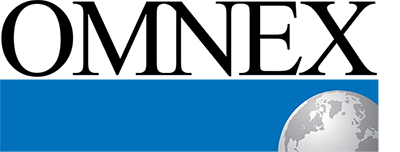Aerospace Quality Management System - Consulting & Implementation
This is a time of unprecedented transformation in the Aerospace industry, with a focus on reducing errors and enhancing delivery performance. Omnex collaborates with Aerospace companies to help them achieve world-class standards of <30ppm> and 100% on-time delivery, using proven methodologies from various industries. Omnex has been a pioneer in introducing Aerospace APQP, PPAP, and MSA to organizations like Bombardier, United Technologies, and Parker. Our work extends not only to the main companies but also to their suppliers. The software developed by Omnex for APQP and PPAP has gained significant traction in the Aerospace sector, with many industry leaders adopting this solution.
The AS9145 (APQP & PPAP), ARP9136 series, and AS6500 (Manufacturing Management Systems) are expected to have a profound impact on the industry, providing substantial benefits to both customers and suppliers when implemented effectively.
Omnex supports organisations in their implementation of AS9100D, AS9110, AS9115, AS9120, and AS9145 for the first time, as well as those transitioning from ISO 9001 or older versions of the AS9100 series. We offer a comprehensive range of training courses, from basic understanding of the standards to implementation and documentation, as well as internal and lead auditor training. Additionally, Omnex experts can provide on-site assistance with implementation. It is important to note that our auditor training covers not only AS9100 auditing but also Aerospace auditing practices in line with AS9101 requirements.
Omnex specialises in the integration of AS 9100 with ISO 14001 Environmental Management Systems and ISO 45001 Occupational Health and Safety. At Omnex, we believe in implementing Best-In-Class Management Systems by combining QMS, EMS, OH&S with ISO 27001 (Information Security) and Social Responsibility.
Omnex brings our unique approaches to Risk Management, Aerospace APQP/PPAP in AS9145, AS13004 (PFMEA and Control Plans) and AS13006 (Process Control), New Product Launch, and Characteristic Classification that we have honed over 26 years. We provide training in AS9145 and Core Tools, AS9102 First Article Inspection, AS9103 Variation Management of Key Characteristics, ARP9136 (Problem Solving), AS13004, AS13006 and other Aerospace requirements. Companies looking to exceed compliance standards and adopt Best-In-Class practices should get in touch with Omnex.
Businesses in all sectors are adapting to meet the demands of a diverse global market. A key factor in consistently meeting customer expectations is a strong manufacturing system that produces defect-free products, on time, every time.
Achieving Defect Free Production requires more than just slogans or costly sorting solutions. It comes from building on past successes and learning from product and process improvements. Effective advanced product quality planning involves applying lessons from previous experiences, understanding customer needs, and making continuous improvements towards achieving Defect Free Production. Contact Omnex for assistance with your Aerospace Zero Defects programme.
Have more questions?
If you are looking for information or certification training for another standard, call or email us. We can and will help meet your needs.

